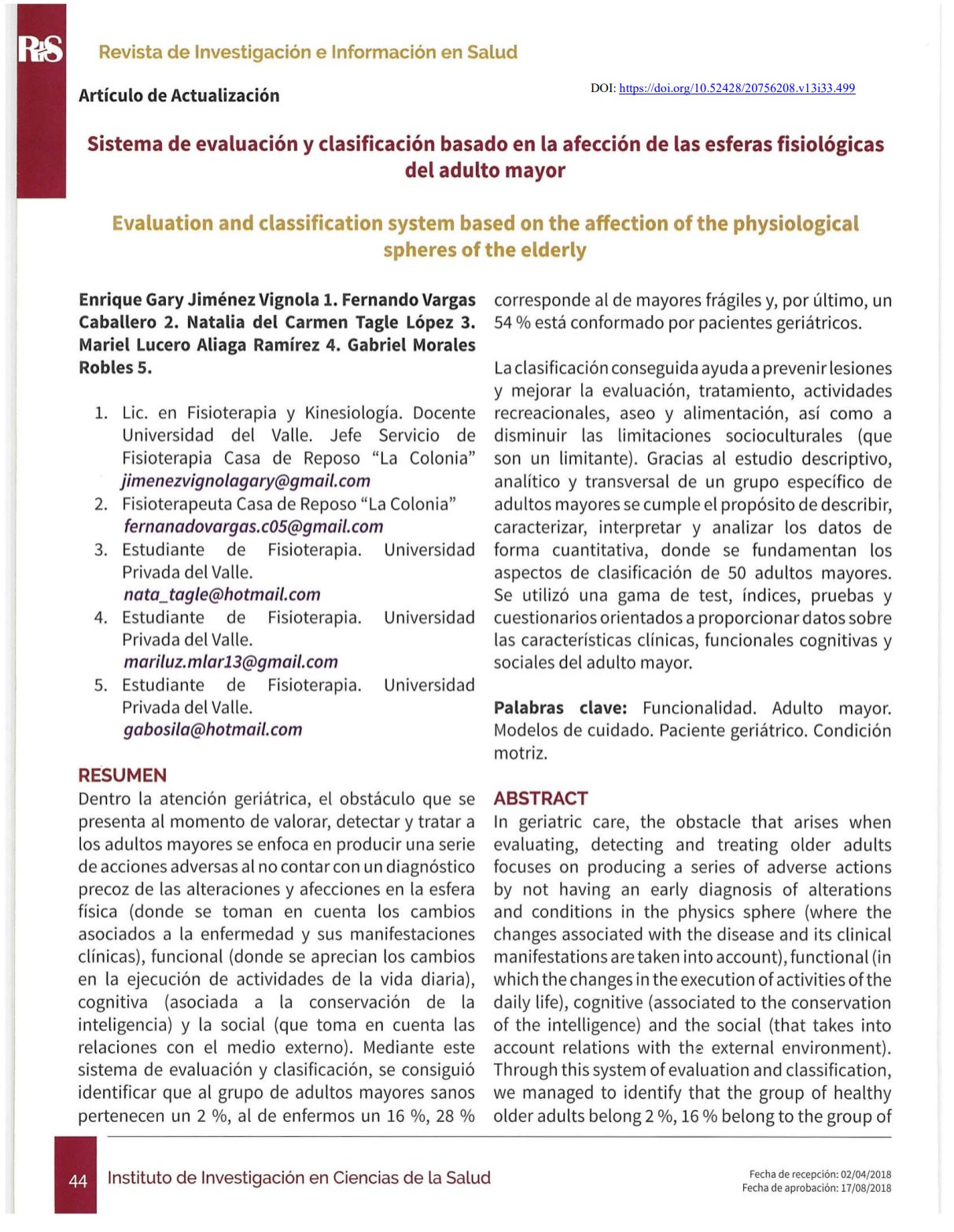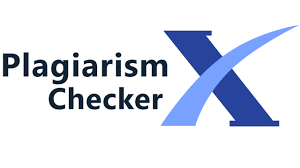Evaluation and Classification System Based on the Affection of the Physiological Spheres of the Elderly
DOI:
https://doi.org/10.52428/20756208.v13i33.499Keywords:
Functionality, Elderly, Care models, Geriatric patient, Motor conditionAbstract
In geriatric care, the obstacle that arises when evaluating, detecting and treating older adults focuses on producing a series of adverse actions by not having an early diagnosis of alterations and conditions in the physics sphere (where the changes associated with the disease and its clinical manifestations are ta ken into account), functional (in which the changes in the execution of activities ofthe daily life), cognitive (associated to the conservation of the intelligence) and the social (that takes into account relations with the external environment). Through this system of evaluation and classification, we managed to identify that the group of healthy older adults belong 2 %, 16 % belong to the group of elderly sick adults, then we find 28 % that belong to the group of the older adults fragile and finally a 54 % belonging to the geriatric patient group. The classification achieved helps prevent injuries and improve evaluation, treatment, recreational activities, hygiene, and food, in the same way to decrease the socio-cultural limitations that are a constraint. Thanks to the descriptive, analytical, and transversal study of a specific group of older adults, the purpose of describing, characterizing, interpreting, and analyzing the data in quantitative form is fulfilled where they are based on the classification aspects of 50 older adults. A range of tests, indices, tests, questionnaires were used to provide data on the clinical, cognitive, and social functional characteristics of the elderly.
Downloads
References
l. TREJO C. El Viejo en la Historia. Barcelona, España: Editorial. Gediosa; 1990.
2. ALBALA C, CONCHA M y DE LA PAZ M. Manual de Geriatría y Gerontología para Alumnos. Santiago de Chile, Chile: Universidad Católica de Chile; 2002.
3. MARTiNEZ C. Los Cuidados Formales a un Enfermo de Alzheimer. Madrid, España: Editorial AFAL contigo; 2006.
4. DIZ F, MARTiNEZ Ly FERNANDEZO. El Paciente Polimedicado. Suplemento La atención al paciente crónico y pluripatológico, el caso de Galicia. España: CIN 2012; 73(1): 37-41. https://doi.org/10.22546/17/311
5. ARBOLEDA A, VARGAS J y GALICIA J. Caracterización del Nivel de Funcionalidad Cotidiana en el Adulto Mayor. Colombia: Editorial Añoranzas, Pereira; 2009.
6. FERNANDEZ DE TROCONIZ MI y MONTORIO l. Gerontología Conductual - Bases para la Intervención y Ámbitos de Aplicación. Madrid, España: Editorial Síntesis; 1999.
7. GIL G. Manual del Residente en Geriatría. Madrid, España: Editorial Gráficas Marte; 2011.
8. GARCÍA C. Evaluación y Cuidado del Adulto Mayor Frágil. Revista Médica Clínica Las Condes Chile: Unidad Geriátrica; 2012; 23(1): 36-41. https://doi.org/10.1016/S0716-8640(12)70271-7
9. TABOADELA C. Goniometría. Buenos Aires, Argentina: Editorial Asociart; 2007.
10. GUIRAO J y GALLUD J. Escalas e Instrumentos para la Valoración en Atención Geriátrica. Valencia, España: Editorial Gráficas Mari Montaña; 2004.
11. MILLAN J. Gerontología y Geriatría - Valoración e Intervención. España: Editorial Panamericana; 2011.

Downloads
Published
How to Cite
Issue
Section
License
Copyright (c) 2018 Enrique Gary Jiménez Vignola , Fernando Vargas Caballero , Natalia del Carmen Tagle López, Mariel Lucero Aliaga Ramírez y Gabriel Morales Robles

This work is licensed under a Creative Commons Attribution 4.0 International License.
Authors who publish with this journal agree to the following terms:
- Authors retain copyright and grant the journal right of first publication with the work simultaneously licensed under a Creative Commons Attribution License 4.0 that allows others to share the work with an acknowledgement of the work's authorship and initial publication in this journal.
- Authors are able to enter into separate, additional contractual arrangements for the non-exclusive distribution of the journal's published version of the work (e.g., post it to an institutional repository or publish it in a book), with an acknowledgement of its initial publication in this journal.
- Authors are permitted and encouraged to post their work online (e.g., in institutional repositories or on their website) prior to and during the submission process, as it can lead to productive exchanges, as well as earlier and greater citation of published work.






















